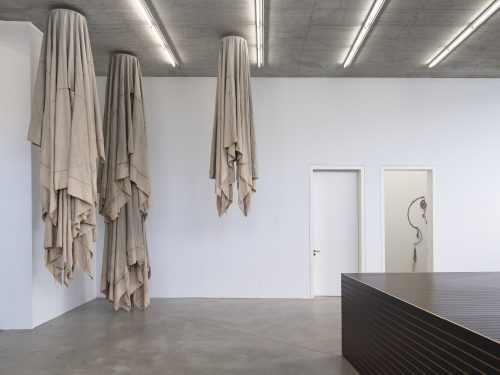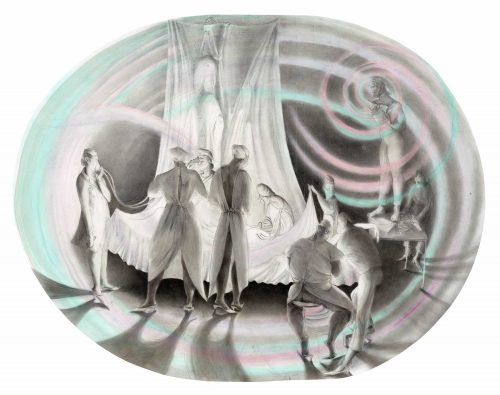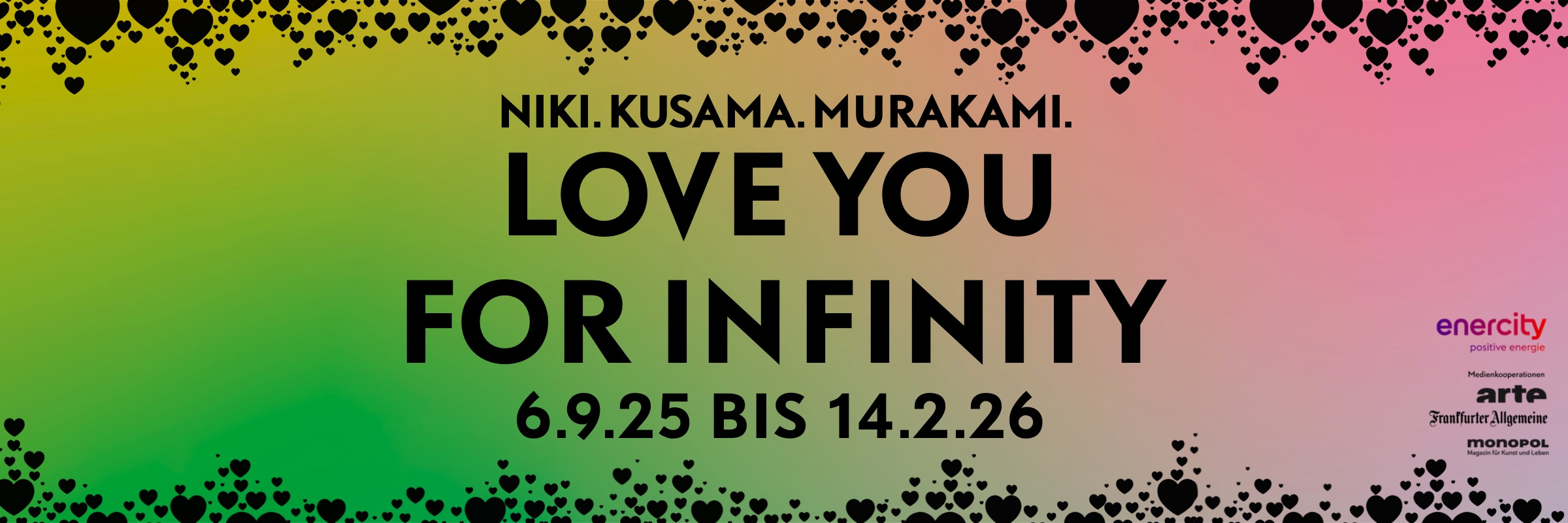
Eternal Engine (with Karolina Grygier and Eliza Chojnacka)
Devil's Circle
Project Info
- 💙 Krupa Art Foundation @krupa_art_foundation
- 💚 Antoni Burzyński
- 🖤 Eternal Engine (with Karolina Grygier and Eliza Chojnacka)
- 💜 Antoni Burzyński
- 💛 Alicja Kielan @alicja.kielan
Share on
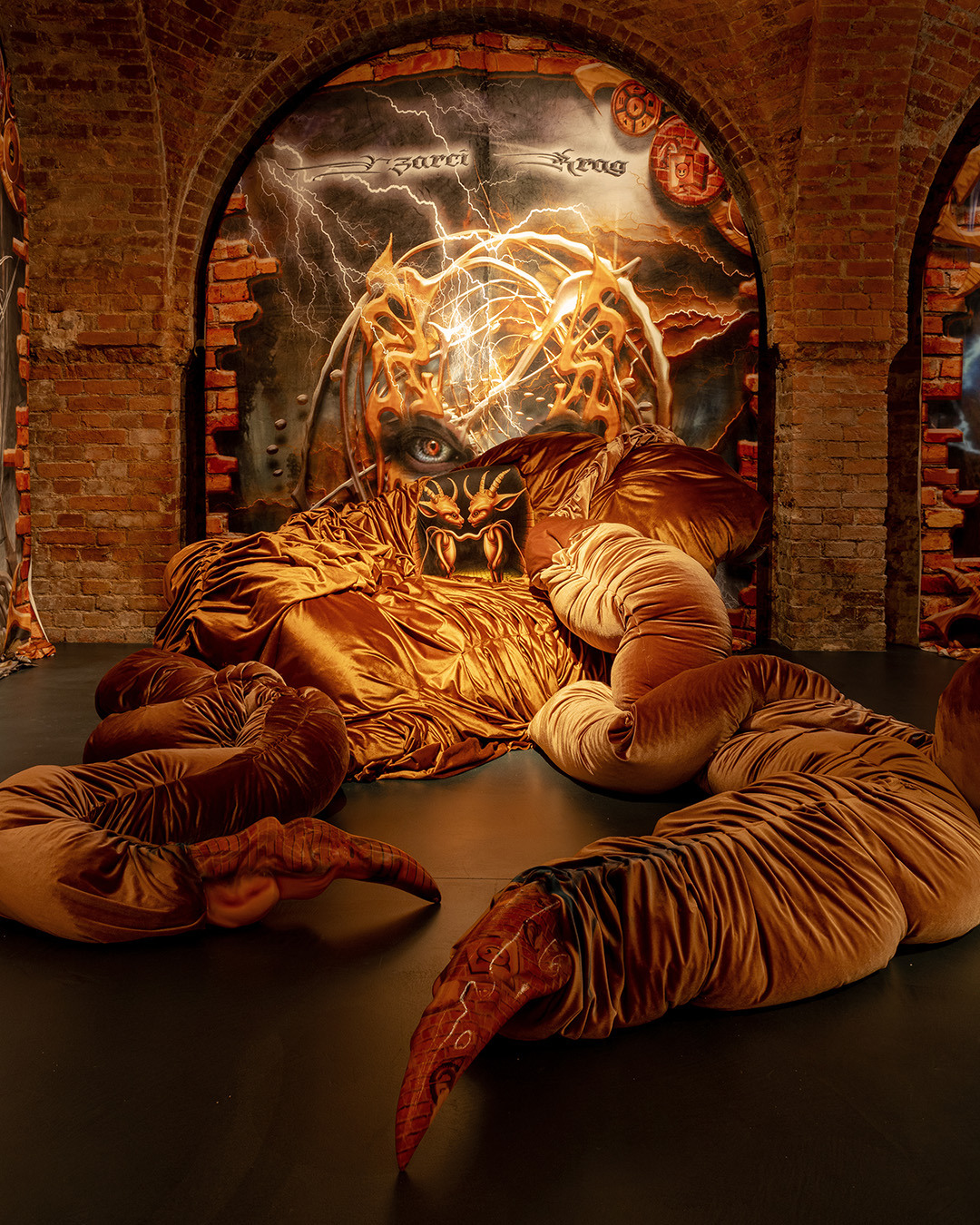
Advertisement
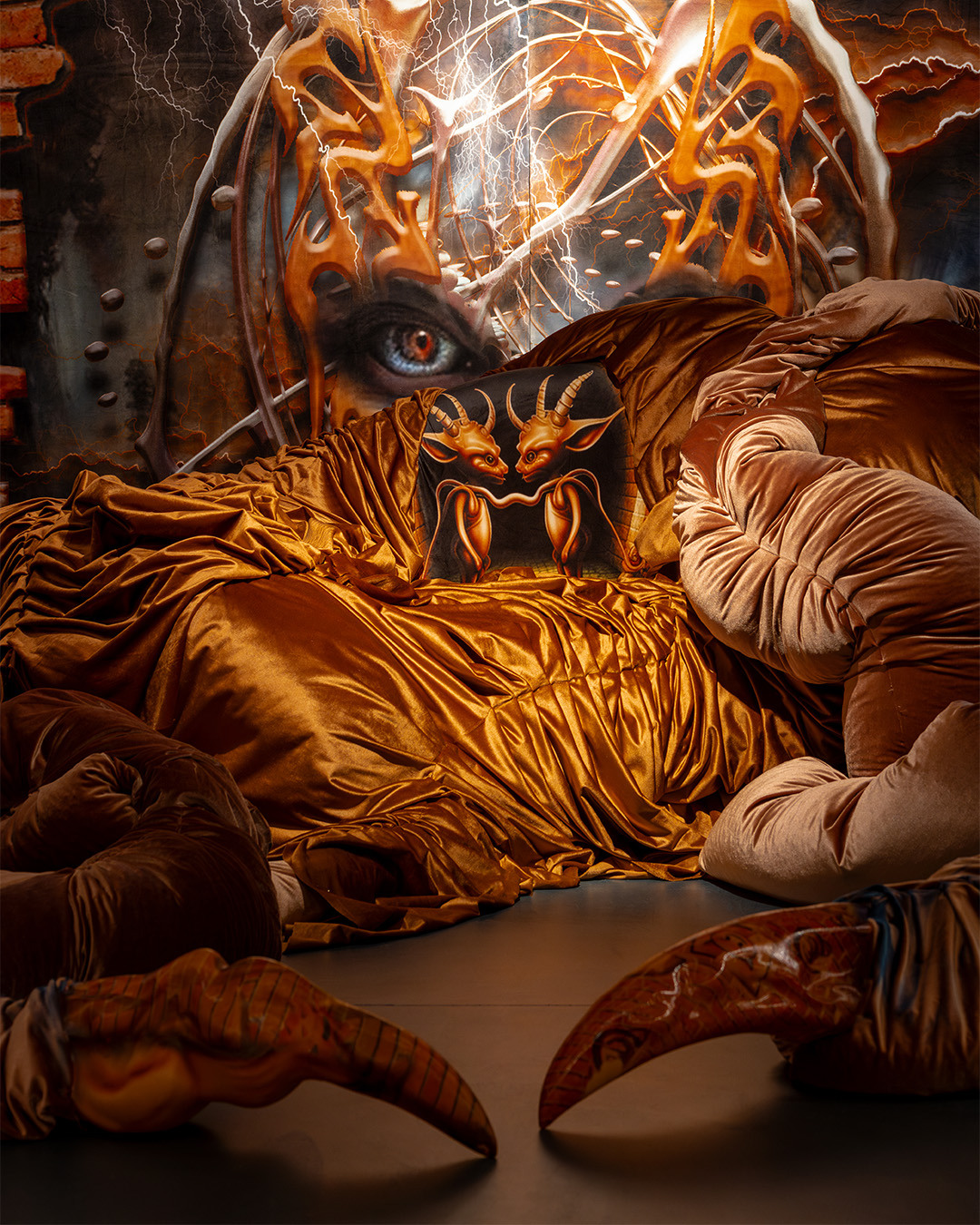
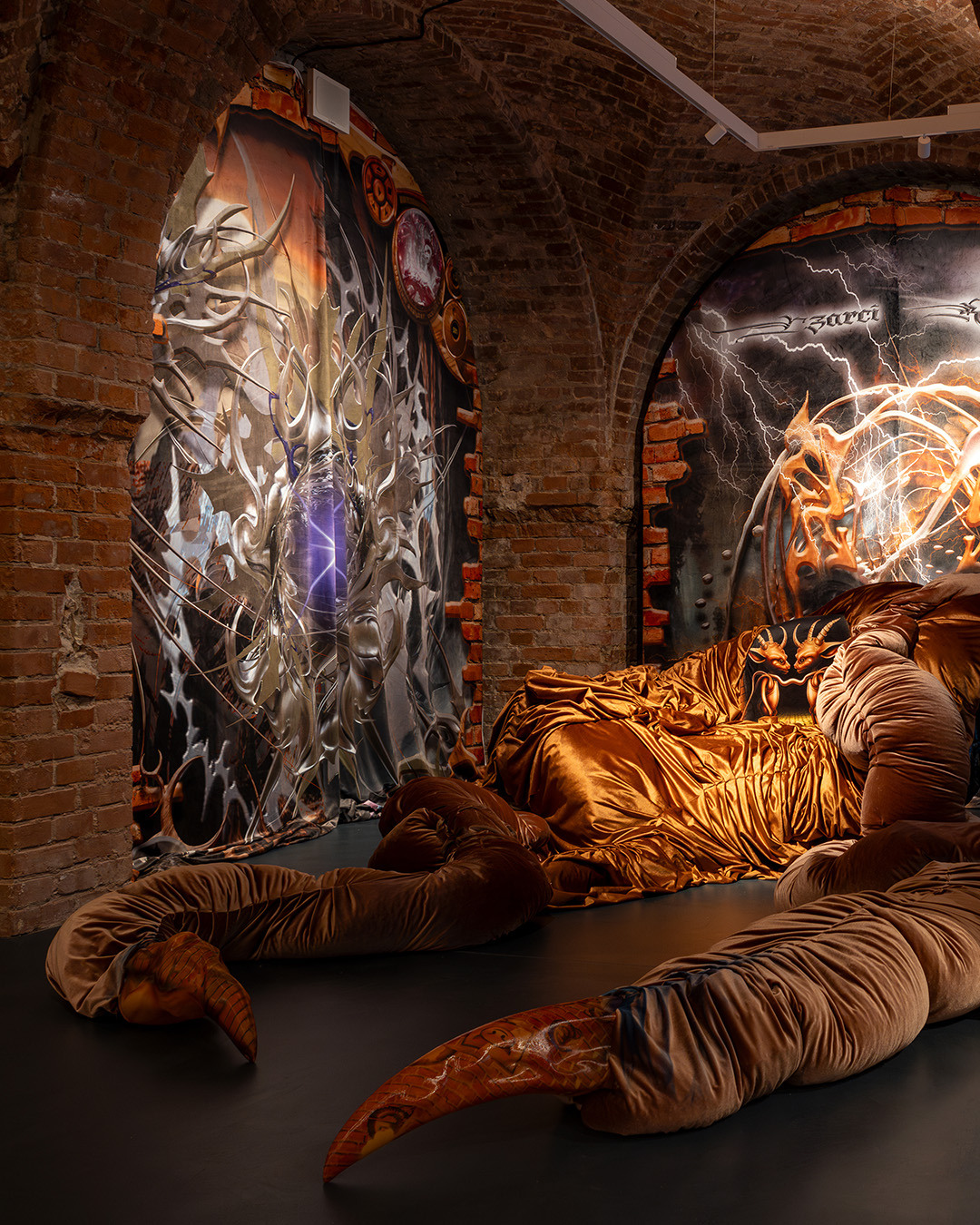

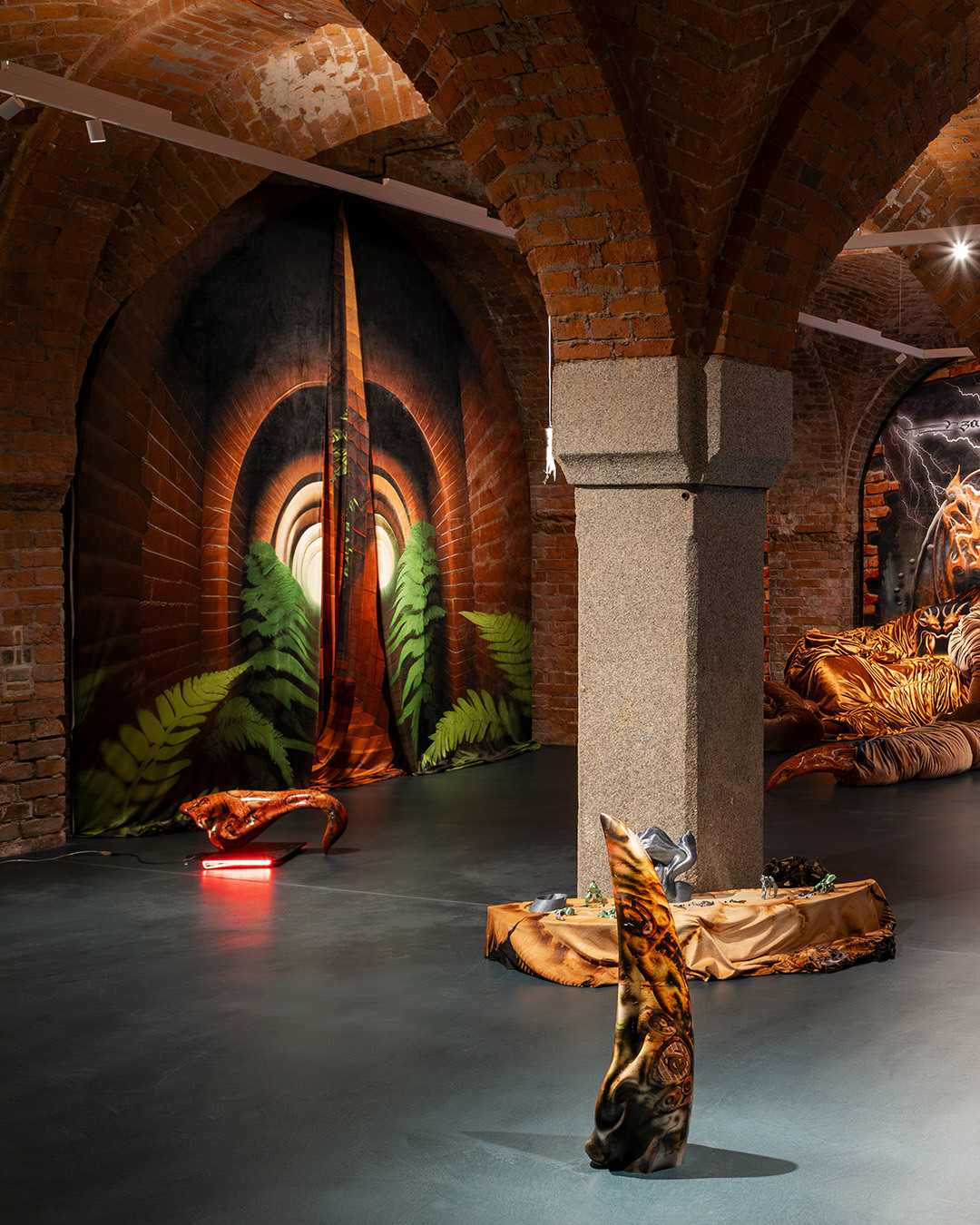
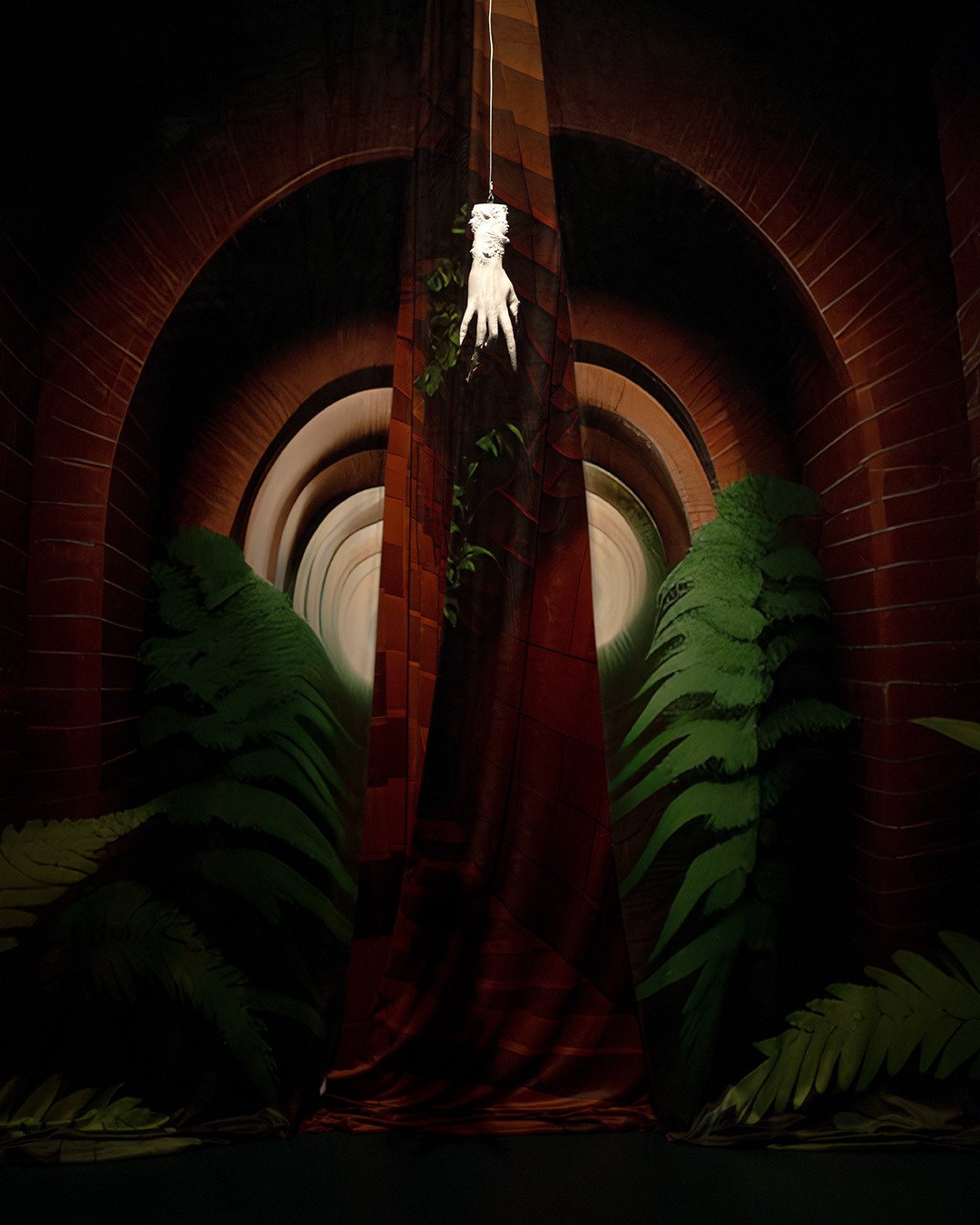
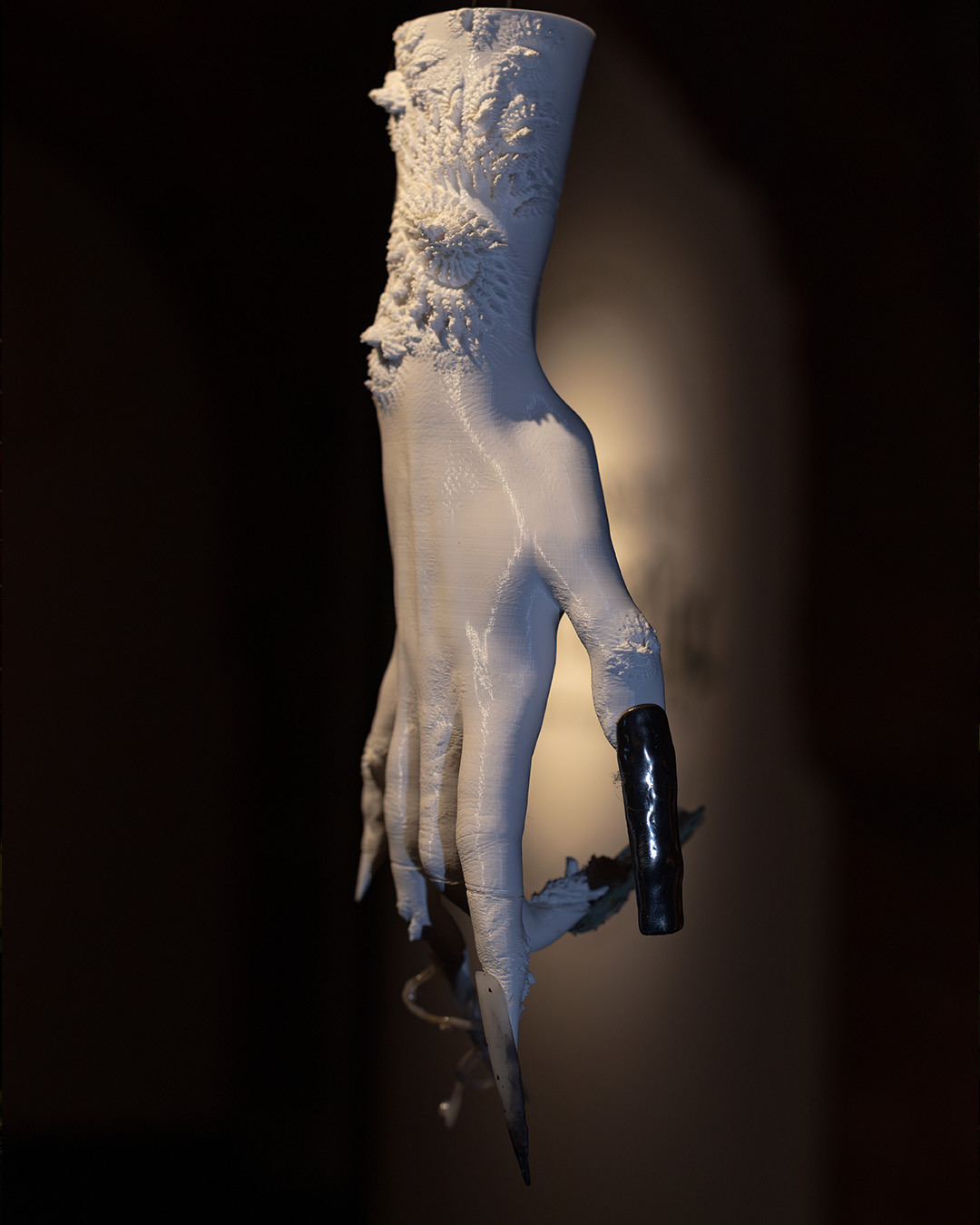
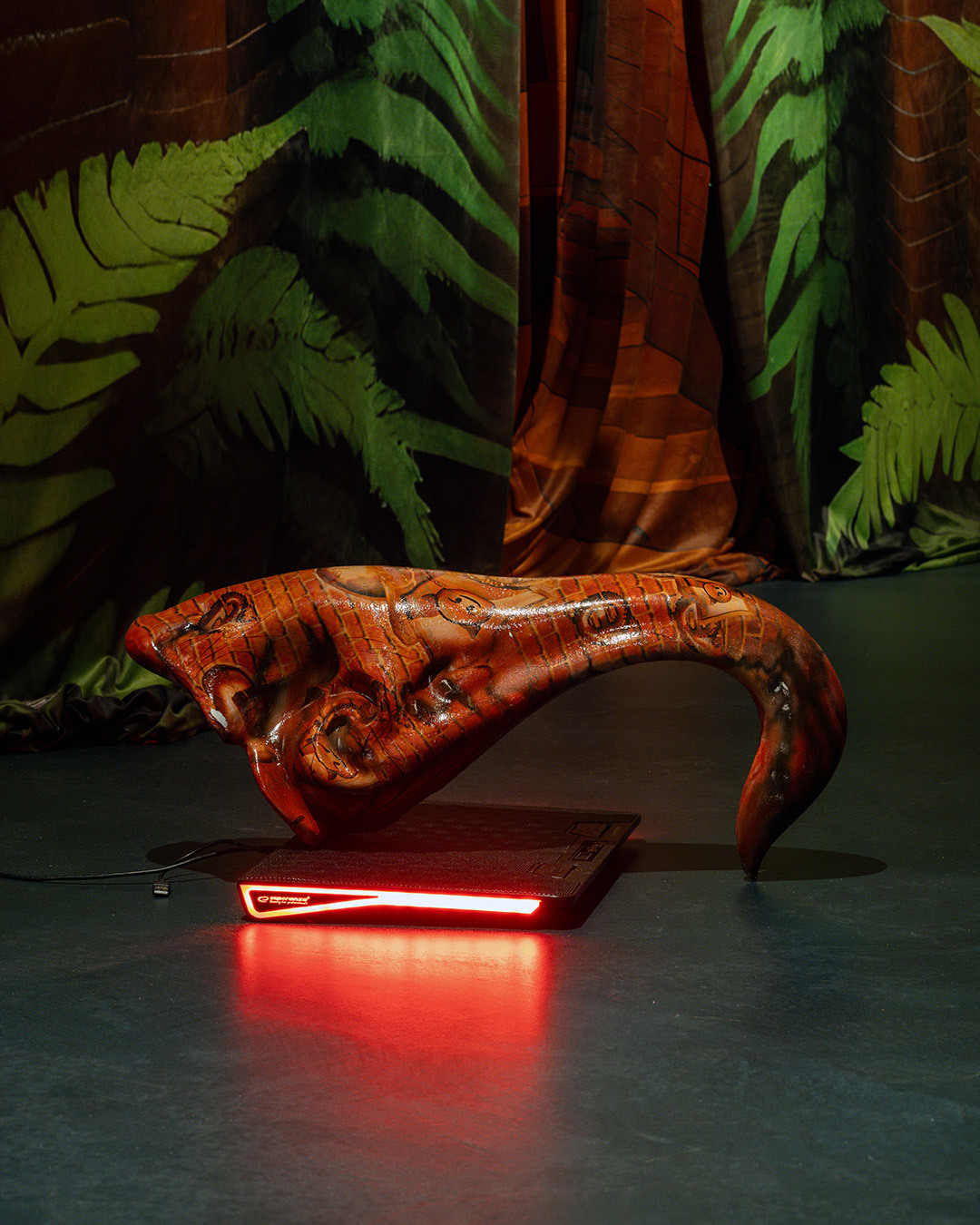
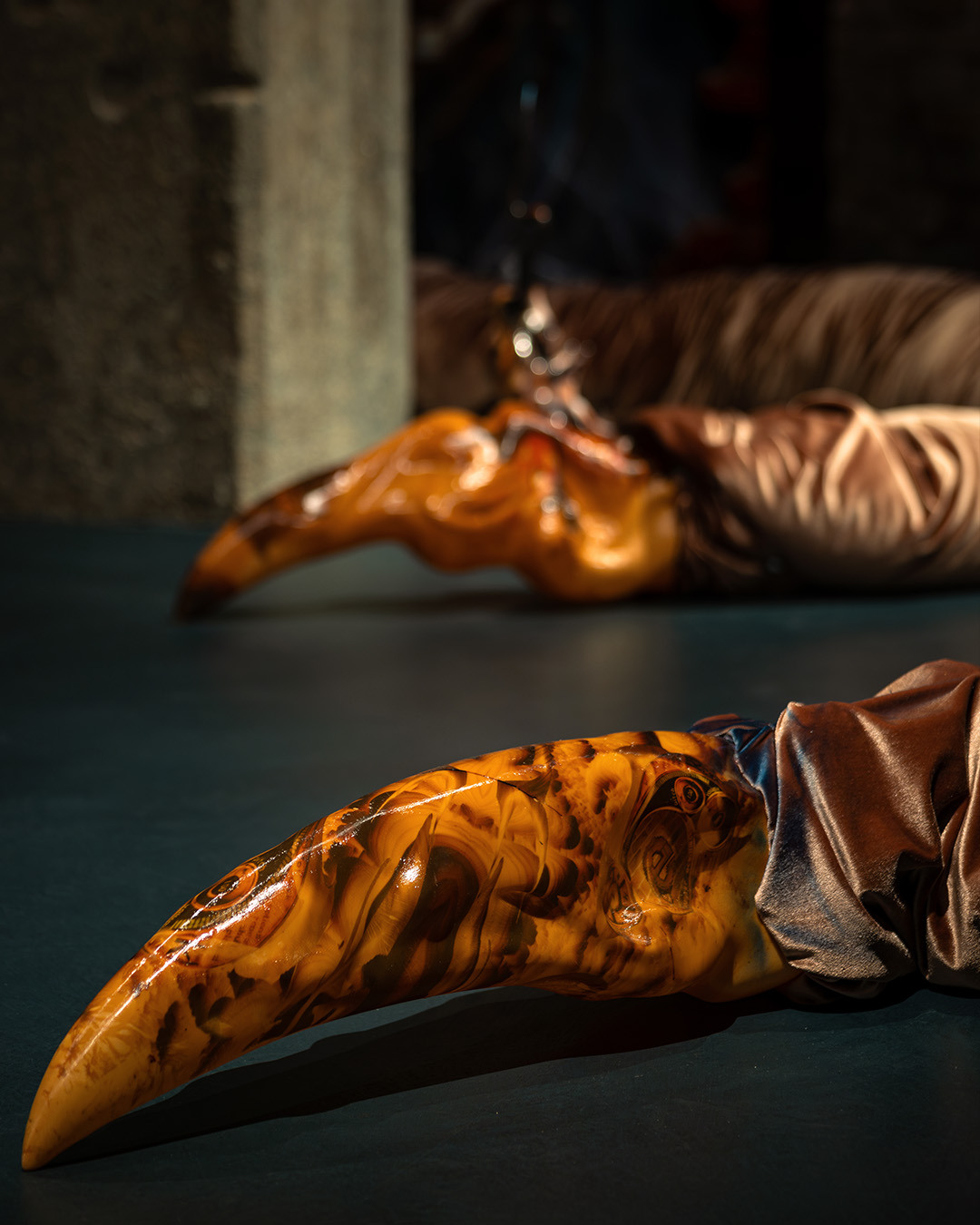
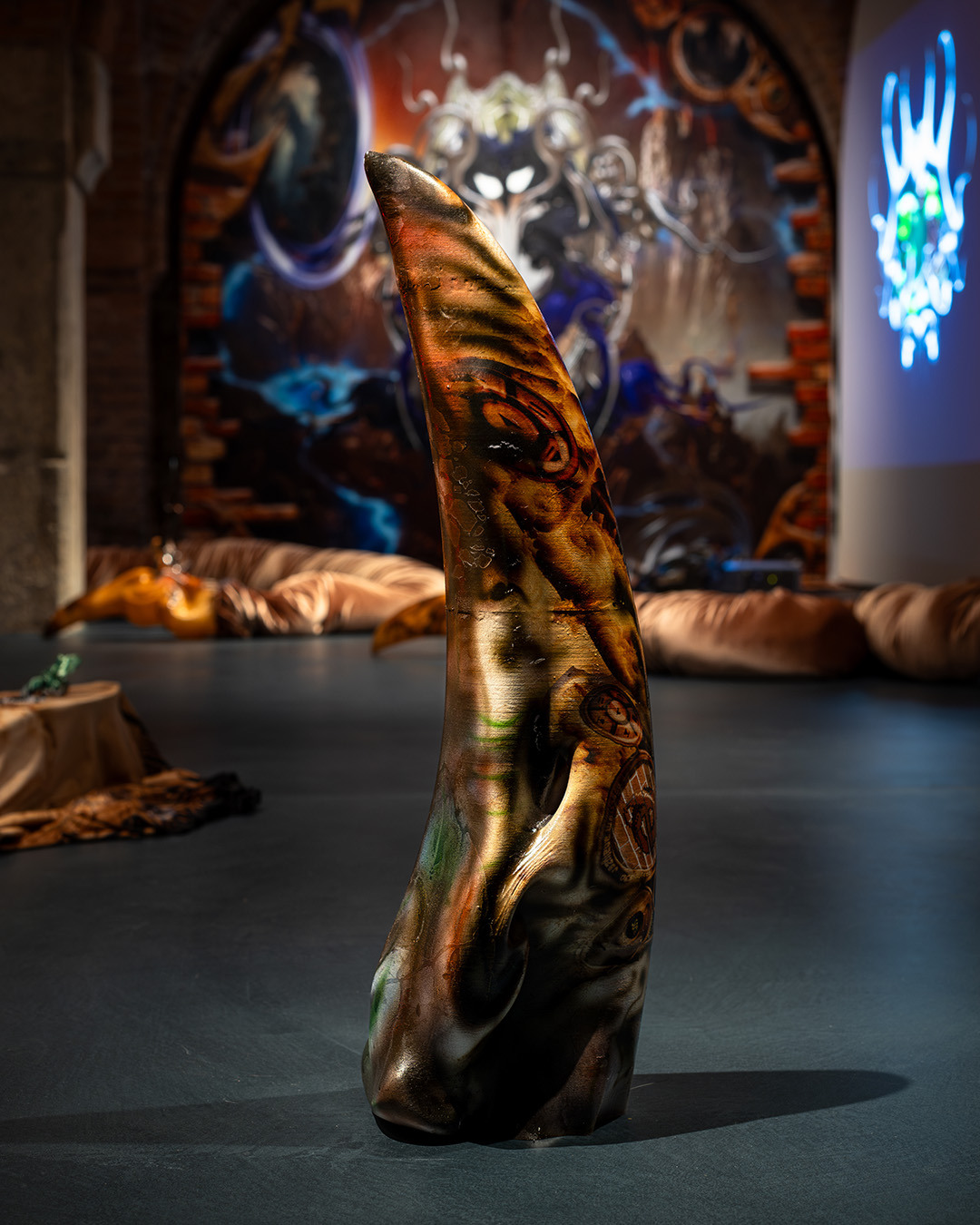
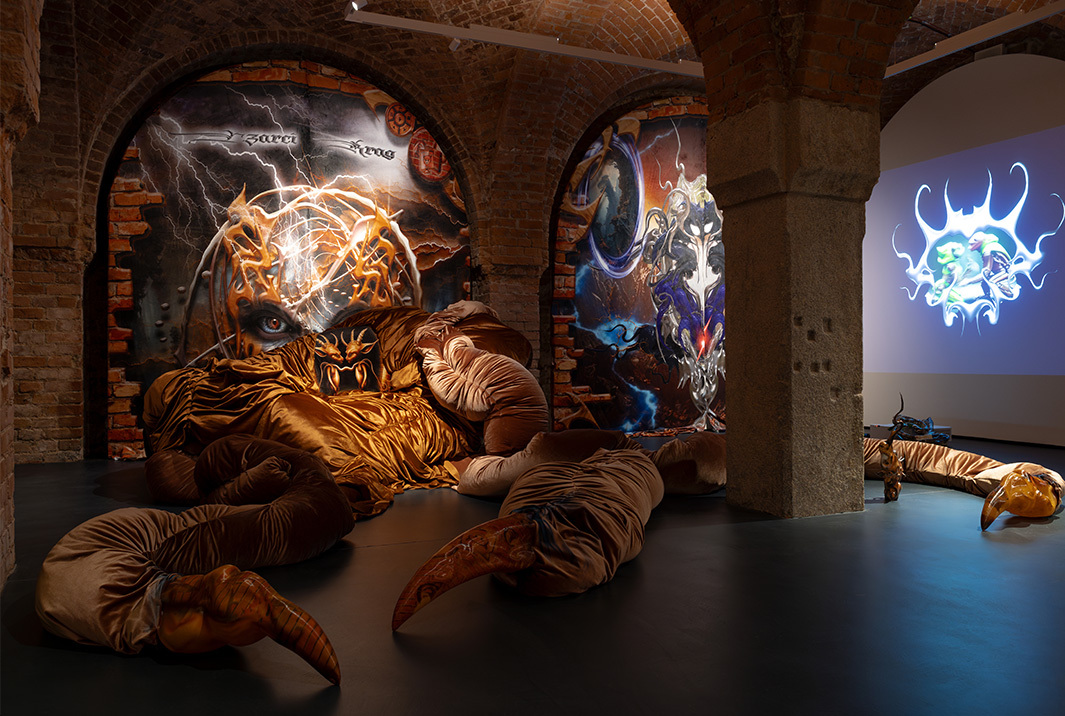
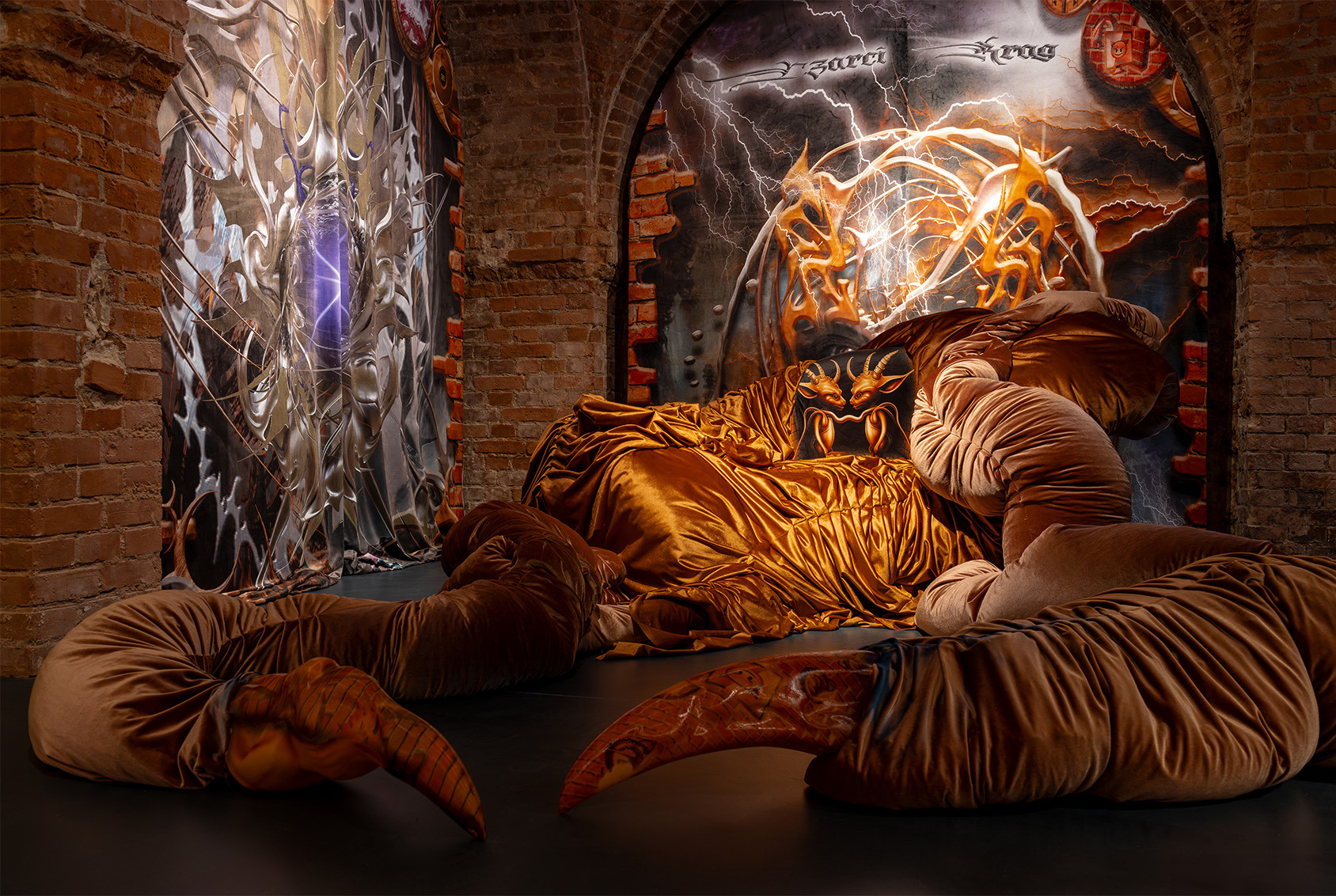
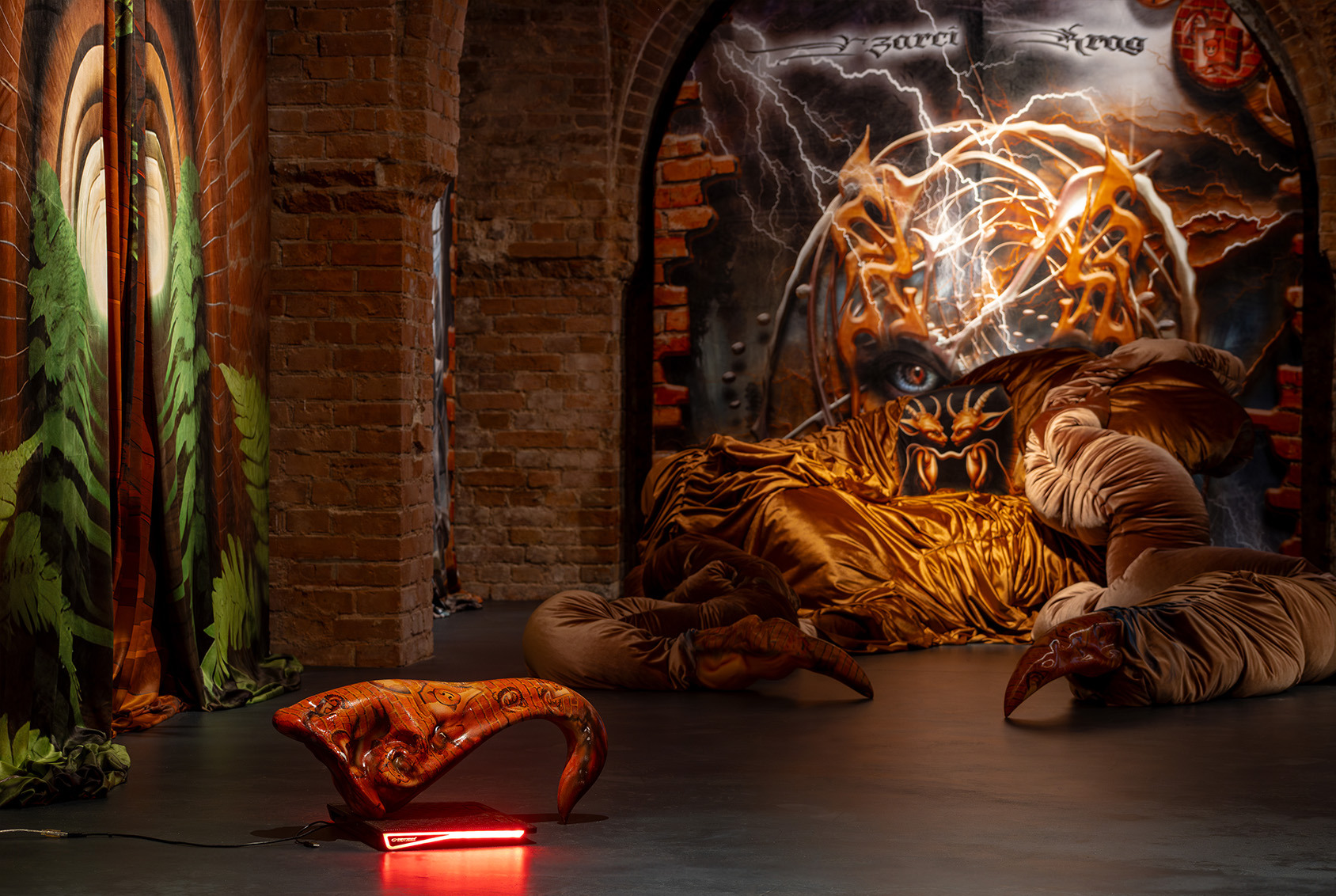
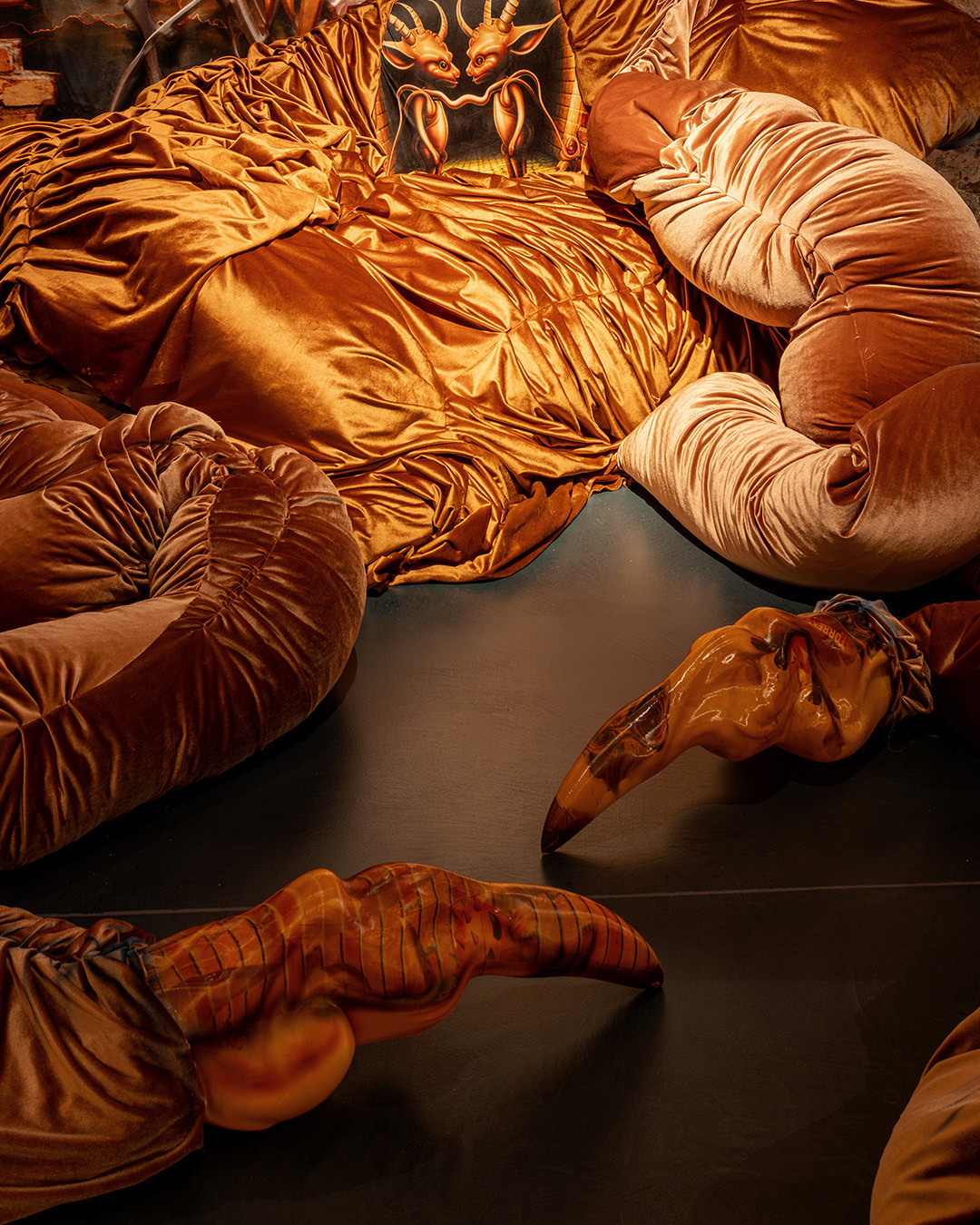
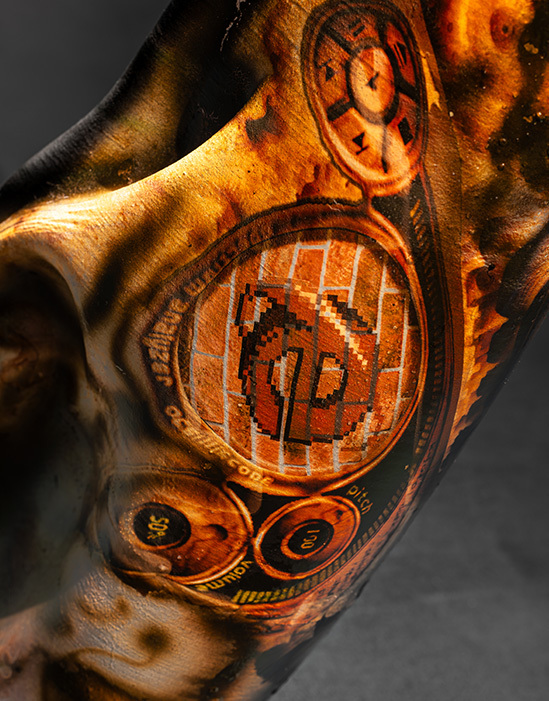
Places saturated with stories of local witches, demons, phantasmagoria, and anomalies documented in the form of legends connect with the sparkling creations of technology, creating electrical discharges that introduce speculative space into tremors.
The phenomenon known as the "Devil's Circles" arises in the field of speculation, connecting local metaverses and leading to the convergence of local beliefs with the technological matrix.
Here, where time undergoes hibernation, a dimension materializes before us, suspended between familiar time codes, where in the never-existent, in underground backrooms, we can observe creations embodying the union of digital and mythical beings.
Legends of the Pixie Ring is a xenofuturistic project prepared especially for the KAF Project Space by the Eternal Engine duo. Martix Navrot and Jagoda Wójtowicz, in cooperation with scenography artist Karolina Grygier and food artist Eliza Chojnacka, use the former shelter to produce a speculative vision of an encounter between the consequences of technological acceleration and local folk beliefs.
The pixie ring, also known as a fairy ring or in slavic folklore - Devils’ Circle, derives from legends that arose around a peculiar phenomenon – mushrooms growing in the shape of a circle or arc. It was believed that in these places, usually found deep in the forest, human rationalising action and attempts to shape space did not apply. A careless wanderer who accidentally ended up in such a ring was subjected to a “magical” force that could have fatal consequences.
In the Eternal Engine project, the magical and “hallucinogenic” connotations of the mushroom ring provide a pretext for breaking free from the market logic. Falling into the Devils Circle is the beginning of a “bad trip” – a sequence of unapparent combinations of two orders: the technological and the magical. Threads from both of them merge and morph with each other while remaining in constant superposition – being here and there at the same time.
The Devils Circle is a place where a technological vision of the future shows the possibility of ceaseless generation of alternative worlds whose social and cultural parameters are arranged differently from ours. The Eternal Engine project uses the technique of worldbuilding to create a vision of transcending the limiting framework of extant solutions. The artists are aware of the potential of digital technology, yet they do not provide a clear answer as to whether their vision is utopian or anti-utopian. Rather, they search for new possibilities and look beyond the future horizon with a pinch of criticism.
Eternal Engine is a queer artistic duo made up by Jagoda Wójtowicz (she/her) and Martix Navrot (they/them, he/him). Their projects combine audio-visual practices and the prototyping of virtuality, exploring the performativity of virtual space and the anomalies of transitional zones (3D, AI, VR, XR). In their practice, Eternal Engine use speculative and queer methodologies to explore technological and quantum futures. To do this, they cross the boundaries of the real and the virtual in tiny, imperceptible steps, millimetre by millimetre, atom by atom, pixel by pixel. They are inspired by the aesthetics of digital folklore and technological fetishes. They were featured in the European Change Makers of 2022, published annually by the We Are Europe – Creative Europe project, and they are taking part in a residency at Unseen Future. They come from Poland.
Eliza Chojnacka is an artist who uses taste as a medium. She has graduated in Social Design from the University of the Arts in Vienna. Her practice grew out of the fertile ground of Spółdzielnia Krzak, a gardening and art collective from Warsaw. She currently works and lives in Berlin. In her artistic practice she uses ephemeral practices such as fermenting, cooking, cleaning or collective feeling. Focusing her interests on the cultural and social meanings of digestive processes, she often adopts the position of a host. She analyses digestive processes on an interspecies scale, treating humans as holobionts – collections of microorganisms. She has collaborated with, or shown her work at, the 26th Design Biennale in Ljubliana; the Museum of Modern Art in Warsaw; HKW- Haus der Kulturen der Welt in Berlin; DOCK20 Gallery in Lustenau; ZK/U centre in Berlin; and D21 Kunstraum in Leipzig.
Karolina Grygier is a queer artist working with the mediums of form, object, space and fabric. She currently studies at the Department of Scenography of the Academy of Art in Szczecin. Karo’s interests oscillate around organicism and animism. She conducts research into materials that are empathetic to ecosystems. Biodegradable structures and organic surfaces that she often creates herself are an important part of her practice. In her current work, newly materialist themes express the pursuit of artistic processes based on a balance towards non-human network agents.
Antoni Burzyński



